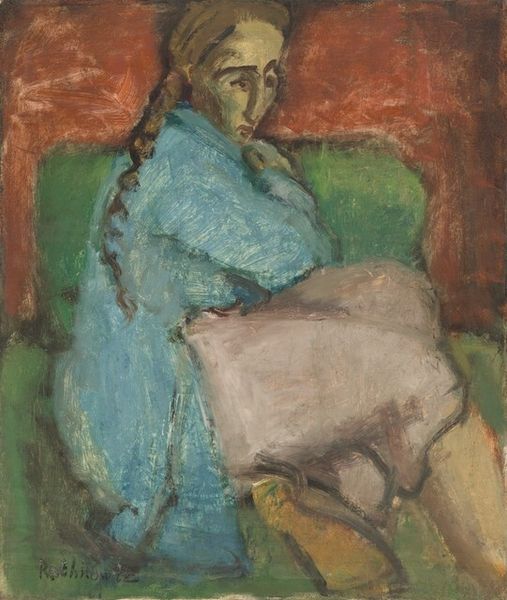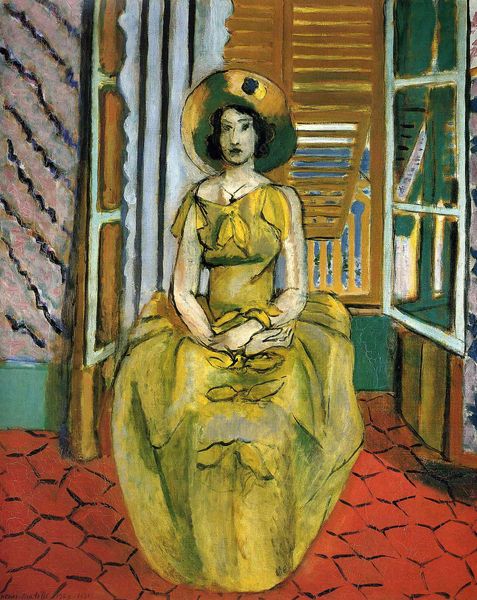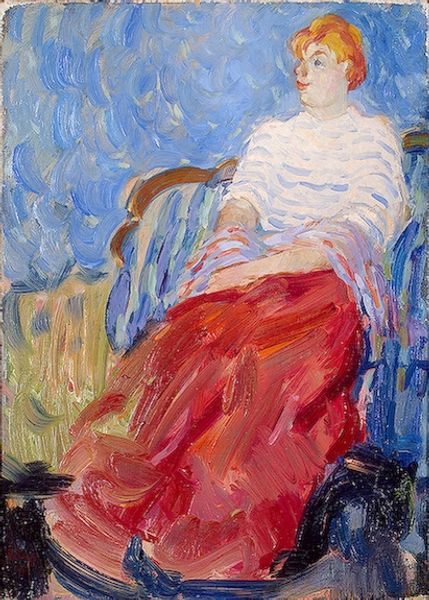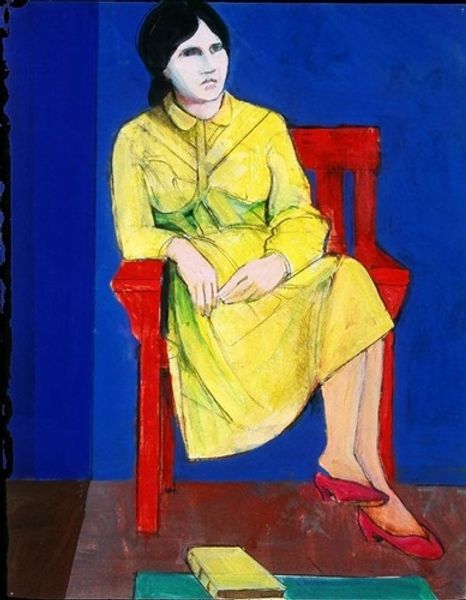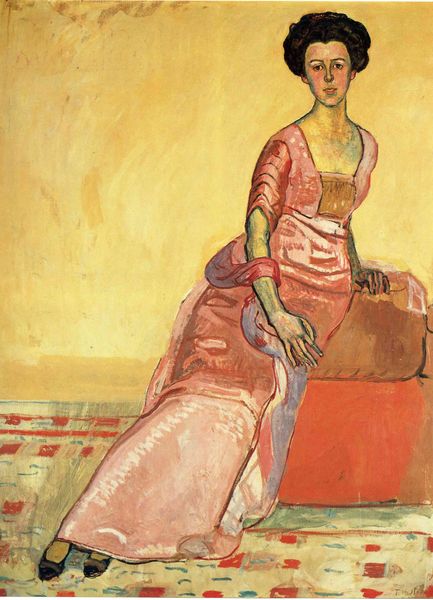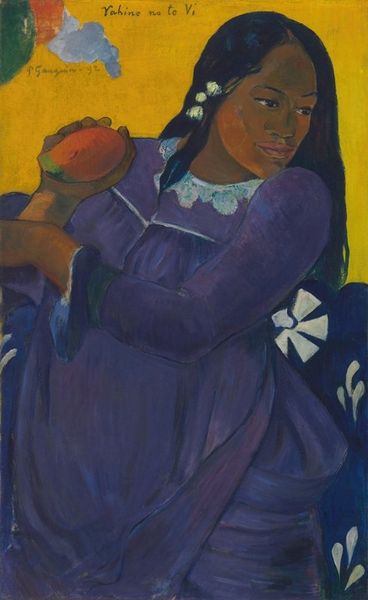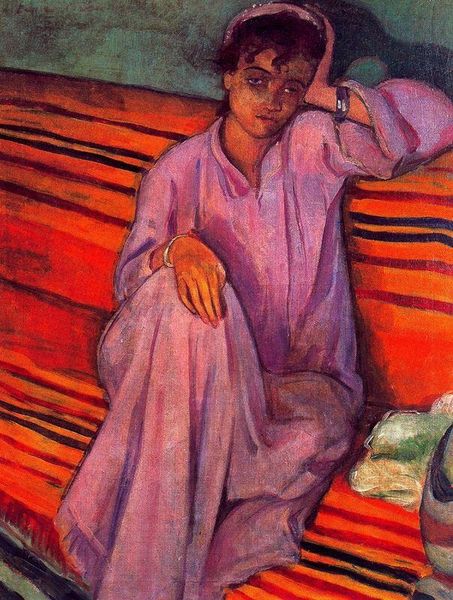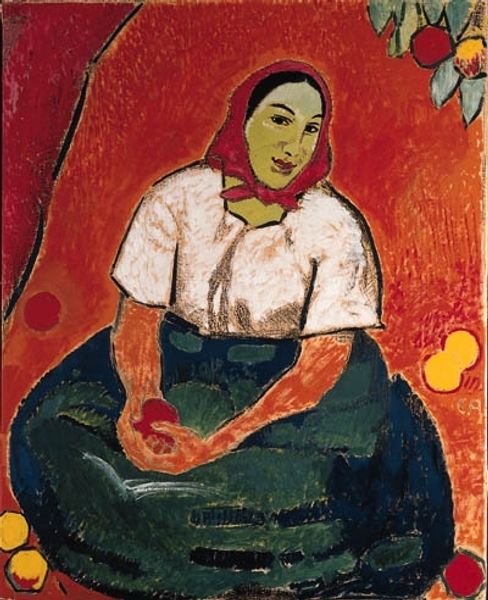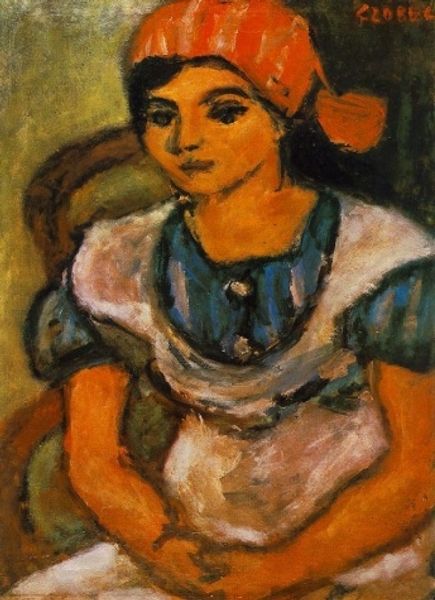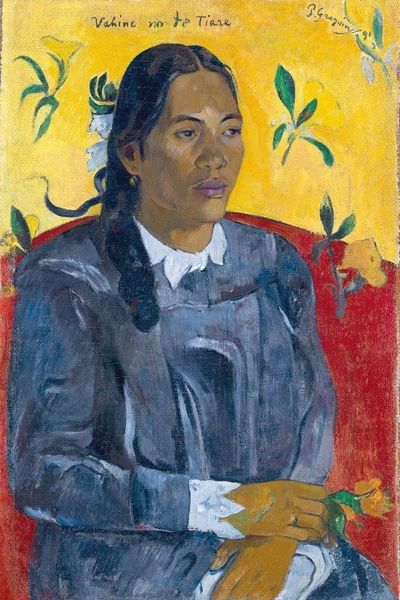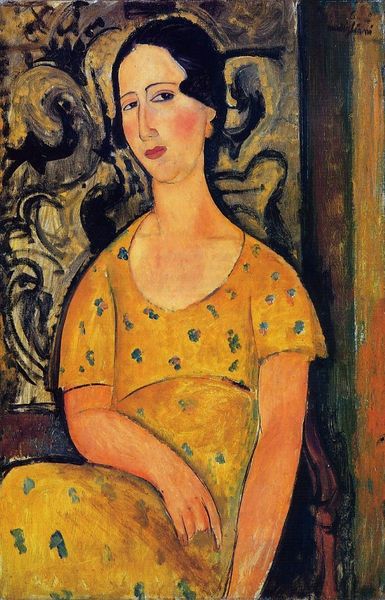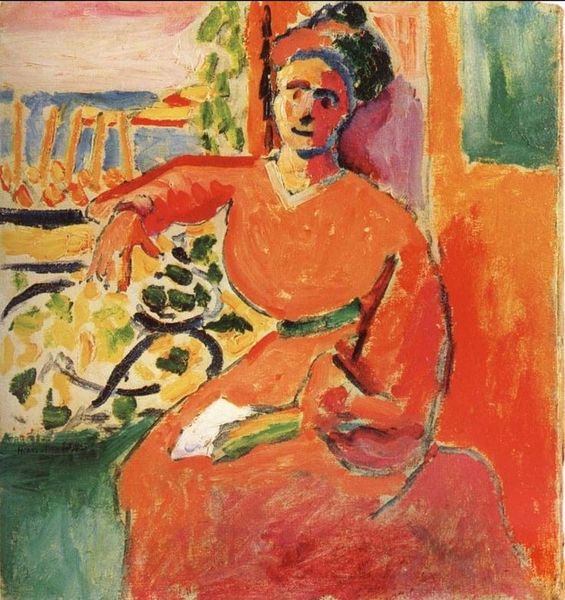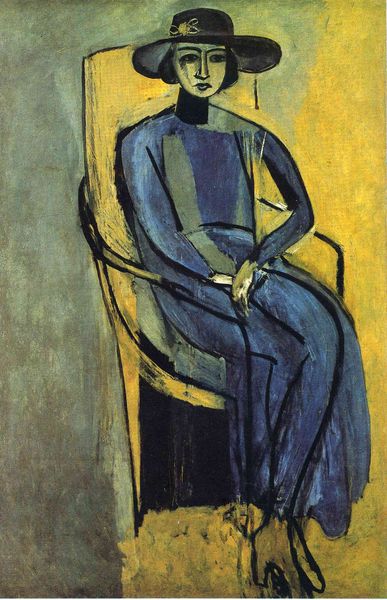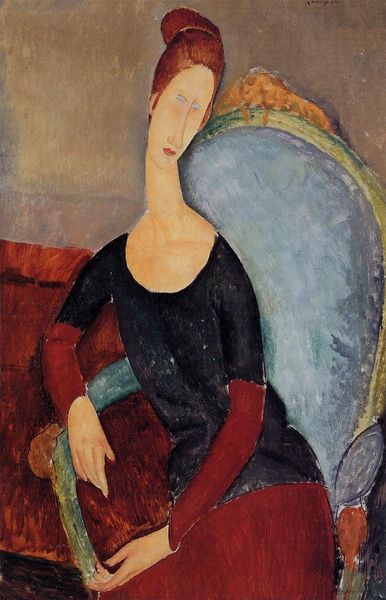
painting, oil-paint
#
portrait
#
figurative
#
painting
#
impressionism
#
oil-paint
#
figuration
#
oil painting
#
expressionism
#
orientalism
#
painting art
#
genre-painting
#
post-impressionism
#
expressionist
Copyright: Public Domain: Artvee
Paul Gauguin painted this Tahitian woman in 1891, using oil on canvas. The painting’s materiality is crucial to understanding its impact. Oil paint, with its capacity for rich color and texture, allowed Gauguin to capture the sitter's contemplative mood, emphasized by her downcast gaze. The application of paint is quite gestural, with visible brushstrokes adding a sense of immediacy. Notice how the rough, uneven surface of the canvas contributes to the work’s tactile quality. Gauguin was fascinated by non-Western cultures and their artistic traditions, and sought to incorporate elements of these into his work. Yet, he relied on industrial materials such as oil paint produced in Europe, and he worked within a well-established tradition of easel painting. The result is a potent mix of authenticity and artifice, inviting us to question the boundaries of both the artist’s own cultural context, and that of his sitter. Ultimately, appreciating how Gauguin’s materials and methods inform this painting helps us to consider it in all its complexity.
Comments
No comments
Be the first to comment and join the conversation on the ultimate creative platform.
